Raining in the Mountain (1979)
Directed by: King Hu
Written by: King Hu
Starring: Chun Shih, Feng Hsu, Feng Tien, Yueh Sun
AKA KONG SHAN LING YU
Hong Kong/Taiwan
AVAILABLE ON DUAL FORMAT BLU-RAY AND DVD: NOW, from EUREKA ENTERTAINMENT
RUNNING TIME: 120 mins
REVIEWED BY: Dr Lenera
Sometime during the Ming Dynasty in China, the elderly abbot of a remote Buddhist monastery is aware of his impending death and trying to work out which one of his disciples would be the most suitable to become his successor. To help him decide, the abbot has invited three guests to the monastery: wealthy merchant Wen, powerful General Wang, and wise scholar Wu Wai. The first two have more on their minds though, as both are after a priceless scroll of wisdom hidden in the library and have brought aides to help them, while monk Hu Wen has his own ideas regarding the abbot’s decision. Then convicted criminal Chiu Ming turns up to atone as a monk, making the situation even more complicated….
Eureka Entertainment continue their dedication to the work of King Hu with Raining In The Mountain, not his last picture but considered to be his last of considerable quality. Its title is perhaps deceiving, because there’s no precipitation whatsoever except in the opening title [nor indeed any mountain that I can see], though its setting does rain intrigue and deception. It’s a very interesting film, perhaps the middle ground between Hu’s more overtly commercial, tighter efforts like Dragon Gate Inn and The Fate Of Lee Khan, and the more epic, self-consciously artful A Touch Of Zen and Legend Of The Mountain. Again Hu reworks his favourite device of having multiple agenda-filled characters converge on a single location and being employed very much like chess pieces, though here the setting isn’t a bar, and he attempts to move away from martial arts much as he did for Legend Of The Mountain which this film was shot back to back with. That movie had duels consisting of magic rather than physical violence; this one, while retaining a few exchanges of blows, devotes much of its action to its characters creeping around trying to hide or discover each other. This makes for a blend of suspense and farce which is quite unusual but which does work for a lot of the time. Hu’s liking for Zen Buddhist philosophy is also at its strongest in this one, though it’s nothing esoteric, rather it’s messages that are easy for just about anyone to pick up and I think even agree with. As to whether this combines to form one of Hu’s better or weaker films is harder to say. I had a good time watching it, but If you think about it, there’s not a lot of plot despite its many characters, though one has to admire Hu’s cheek in spending an inordinate amount of time in setting things up and then not always delivering what seems to be promised, while this may be his most beautifully photographed work, at least in terms of its nature scenes.
You should probably expect not much background information from me for films like this, but let’s briefly take a look at Hu’s career and this movie’s place in it. Hu has been a favourite of many critics for some time now, though I’m not sure he’s as well known or as popular as some other filmmakers working in the same genre, partly I think because much of his work falls between two schools; two arty for the kung fu crowd, yet still belonging to a genre often looked down upon by art house lovers, though the gap does seem to have lessened a bit in the last two decades. Beginning his movie career at Shaw Brothers, his first wuxia offering was Come Drink With Me which was a major 1966 hit. Its influence on the martial arts movie cannot be understated, and the same can be said of the even more popular Dragon Inn which he made after leaving Shaw Brothers and joining Golden Harvest. However, after this, Hu’s work struggled commercially as trends in the genre changed and he had to make films independently. A Touch Of Zen may have been a borderline masterpiece, but it failed to get much of an audience, and the back-to-back The Fate Of Lee Khan and The Valiant Ones, despite being more obviously ‘commercial’, didn’t do too well either, barely noticed in the wave of ever more exciting, outrageous genre movies. Hu probably hoped that Legend Of The Mountain’s difference would make it stand out, but despite being a partial forerunner to the wave of fantasy-heavy wuxia stuff that soon followed commencing with Zu Warriors From The Magic Mountain, it failed to do so, while Raining In The Mountain went largely unseen until very recently. With the exception of The Swordsman which he left half way through, Hu’s final films failed to fare well either.
This one begins with a lengthy series of shots showing three people traveling through the countryside. While nowhere near as long as that journeying sequence in A Touch Of Zen, it’s hard not to imagine many finding it drawn out and an unnecessary preamble, but then once the trio arrives at the Three Treasures Temple, they still take ages to walk through it to the building that’s their destination, this almost taking place in real time. You could condense the opening fifteen minutes down to one, but you’d lose the sense of environment that has been built up, and this is the kind of thing that differentiated Hu from his peers. The three people are merchant and benefactor of the temple Esquire Wen, his supposed concubine who’s actually notorious thief White Fox, and servant Gold Lock. Wen is after this sacred handwritten scroll of Tripitaka [yes, the same monk in the Journey To The West book popularised in the cult TV series Monkey] hidden in the monastery’s library. So once the sun has set, White Fox and Gold Lock set out to find the library, trying not to to seen by any monks as they alternately run, creep, hide and jump. It’s surprisingly exciting, and aided by a variety of angles including one from a great distance where we can only just about make out the two descending from a wall which shows us how big this place is. Eventually they’re surprised by monk Hui Wen who, with a smirk on his face, calmly unlocks the door to the library. The two retreat to try another day, but Wen thinks he may get the scroll without much more effort, because Hui knows that the Abbott is much influenced by whatever Wen says, and thinks that some kind words praising Hui will led to the Abbott choosing him as his successor, for which he’s willing to give Went the scroll.
But more folk turn up: General Wang and his murderous assistant Cheng Chang who also wants this scroll, scholar Wu Wai who, despite being a layperson, has a deeper understanding of Buddhism then most monks and is happy to travel with an entourage of female monks because the elderly man is “immune to sensual pleasure”, and Chiu Ming, who’s here to do penance even if he didn’t commit the theft that he was accused of. In fact the real culprit was – Chang, who murdered Ming’s brother too because he wouldn’t sell him a sutra that he wanted, but of course has the protection of the law. And guess what the Abbot asks Ming to guard? It really does take a long time to assemble this cast of characters, it being the Abbott finally naming his successor being the thing that really sparks things off because it surprises everybody in the temple though I will say that it didn’t surprise me. The plotting is far less heavy than you think it will be; despite all these folk running around this temple, it’s all very easy to follow. Fight action is limited to two tiny skirmishes and a confrontation at the end in which only a small number of the main characters are involved. In terms of choreography [ignoring the two Hu films where Sammo Hung took over the job] this is one of the best staged Hu battles despite some of those quick edits to suggest flight which as usual don’t quite work, but it almost comes across perfunctory, with the film’s real climax happening after. But things were involving enough without brawls, and the one really bloody killing rather sticks out. And every now and again there’s some running, hiding and bumping into each other to enjoy, though after a while it gets rather silly. One just has to laugh at things like a person passing by where somebody suddenly emerges from the ceiling, but seeing as how one moment is very similar to a particular Laurel and Hardy sketch, the silliness was probable deliberate. In fact there’s an absurdity about the whole thing. And there are some instances of sly humour throughout, like Wai teaching the temple monks while his female disciples are bathing right next door, leading to an exchange between Wen and Hui on the merits or not of this situation with regard to studying Buddhism.
The pace only begins to lapse with the appointment of the new Abbott about half way through who starts to seriously change things to the consternation of many, though at least one section of dialogue which would otherwise have taken ages takes the form of a short montage where we can’t hear anything which is being spoken, something which shows that Hu certainly could do brevity when he felt like it, and he was probably right to do it here. We get what feels like a quite different than usual depiction of temple life, especially with regard to its inhabitants, with these monks being shown to enjoy the sight of women, pay for food to be snuck over the wall to them because the meals they have to suffer are not very good at all, being prepared to question things, and not knowing martial arts. They don’t even seem to want to work for a living even though we’re made aware of the bigger picture, that the temple is struggling financially. The fact that a revenge subplot is not followed through is one example of both the way that Hu plays with genre conventions and of the Buddhist philosophy that he’s teaching us. Hu’s thinking makes itself known very early on when we’re told that the three treasures of the Three Treasures temple are not actual objects but Buddhism, Dharma [for which there isn’t a single-word equivalent in Western languages but which basically means the nature of reality] and the monastic community. I think that most of us will agree that there’s nothing particularly Buddhist about the greed of many of these people, who fail to grasp the really pretty obvious fact that the scroll’s power lies in its written message, not in the object itself. We’re asked to consider how so many who follow religions just don’t ‘get it’ and mistakenly take the wrong path, plus how each and every one of our actions can have a knock-on effect.
But, despite this really being quite a spiritual film , things never get overly heavy or preachy. Even some ambiguity appears at times, such as the Wai character, who’s obviously hugely wise [we’re told “even the Emperor defers to him”] yet travels in style with a huge entourage and seems to enjoy being a celebrity. And in the end advice given mostly ends up being ignored. Of course the things looks terrific, with Hu’s very precise camera positioning leading to lots of precise, gorgeous compositions plus of course frequent shots of sunbeams shining through trees. The mostly foolish, misguided, attention-getting characters are in reality less important than the stone, foliage and water that surrounds them, something enhanced by there only being very few close-ups of their faces, though I could have done with a bit more depth in characterisation. I miss the tiny touches that are able to reveal so much about a person which are in other Hu work, but then here we’re dealing folk who are more symbolic in nature than anything else. Familiar Hu lead Feng Hsu’s role is one of her least interesting ones and she doesn’t seem to be quite into it, though performances overall are decent. It’s weird seeing some of the cast and location of Legend Of The Mountain reappear. And Wu Da-Jiang’s music score is sometimes recorded overly loud which can’t help but be a problem when said recording doesn’t always sound too good either. But, despite not being something I would recommend at all for newcomers to this director, there’s a hell of a lot to enjoy in this breezy, offbeat romp.
Rating: 









This is the film’s premiere on Blu-ray. Apparently a complete negative of the film couldn’t be found, so this 2018 restoration is made up from several sources. Over two thirds of the film look excellent, detailed, sharp and lacking that Ritrovata yellow emphasis as it seems that this restoration was done elsewhere. However, some sequences look a little washed out and colour fluctuates from scene to scene at times. This is clearly no fault of Eureka’s and the Blu-ray is still very watchable.
Tony Rayns does another one of his very laid back-sounding but worthwhile audio commentaries. We get the expected biography of Hu, and very little scene specific stuff, while despite saying that he won’t describe the plot he sometimes does that very thing. But we get some production information, much insight into this film and Hu’s work in general, and a good argument for Hu being a great filmmaker. David Cairns’s video essay takes a different approach after its own potted biography, going into philosophy and meaning [he has a possible explanation for the title] before taking us through the film and going into some particular scenes. It makes a nice contrast to the commentary.
A fascinating variation on the martial arts movie that also shows that a movie can be overly spiritual yet still fun. Highly Recommended.
SPECIAL FEATURES
*Limited Edition O-Card [2000 units]
*1080p transfer of the film on Blu-ray, from the Taiwan Film Institute’s 2K restoration
*Progressive encode on DVD
*Optional English subtitles
*Original Mandarin audio, fully restored and uncompressed in its original monaural presentation
*Brand new and exclusive feature-length audio commentary by critic and Asian cinema expert Tony Rayns
*Beyond Description – A brand new video essay by David Cairns [21 mins]
*Trailer
*A collector’s booklet featuring new essays by Chinese-language film expert and author Stephen Teo; and Asian cinema expert David West, news editor at NEO magazine

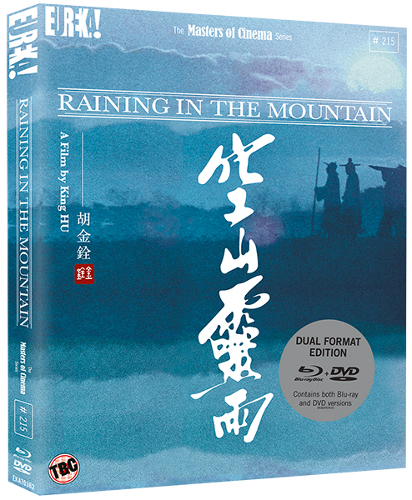
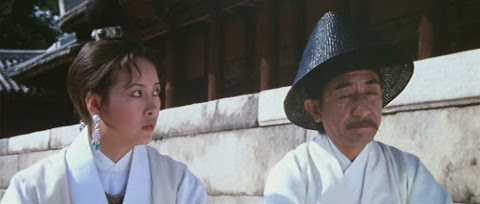
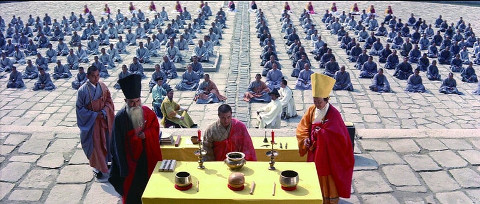

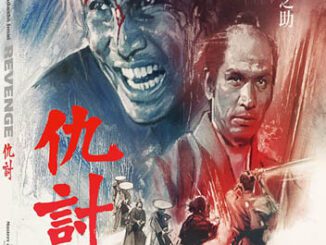
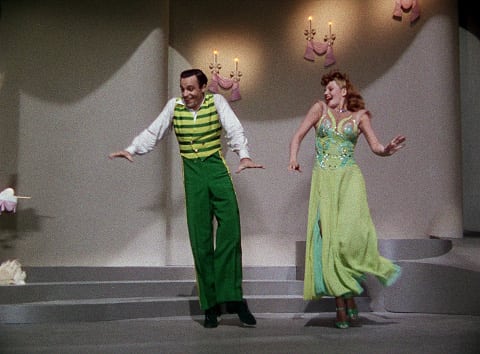
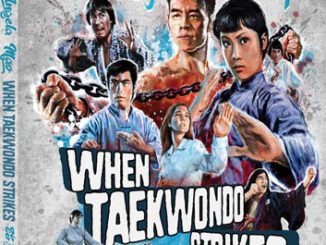
Be the first to comment